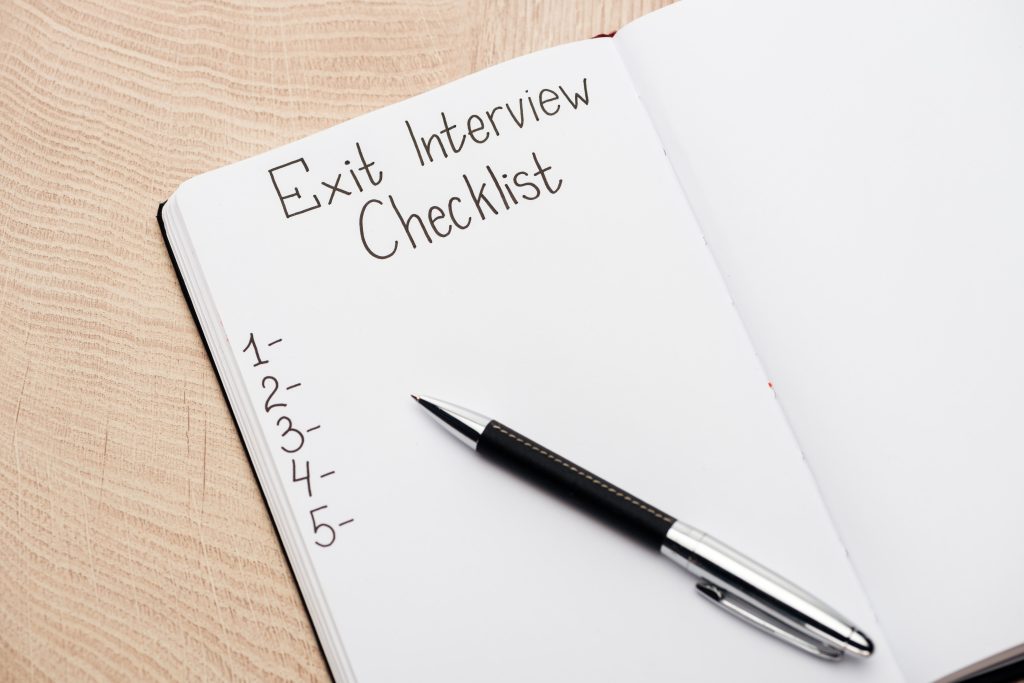16 questions HR managers should ask in a Stay Interview
The Stay Interview is a powerful tool HR managers should use to increase engagement and retention of the top talent in the company.
If you are an HR manager looking to stop or limit Quiet Quitting in the company, Stay Interviews are the place to start.
What is the Stay Interview?
The Stay Interview is the opposite of the Exit Interview. While in the Exit Interview, the HR manager asks questions to uncover why the employee is leaving, in Stay Interviews, the HR manager asks the employee questions to determine their level of satisfaction with the company and their job role.
What is the purpose of the Stay Interview?
The purpose of the Stay Interview is to raise employee retention rates. During the interview, employees are invited to talk about what they like the most about their job roles as well as their least favourite part, whether or not they feel seen by management if their career goals are met and what should the company do to improve their performance.
The Stay Interview is an opportunity for HR managers to assess the employee’s current level of engagement and what the company can do to maintain or increase it.
What do you do after the Stay Interview?
After the Stay Interviews are completed, HR managers forward their conclusions to top management and make recommendations about the aspects that should be improved or changed.
Stay Interviews show that the employer takes accountability for the factors they control and are a way to build trust with employees.
If there are no follow-ups from top management, the employer breaks the employees’ trust with employees concluding that Stay Interviews are just a waste of time and the company doesn’t care about them.
What is asked in the Stay Interview?
The Stay Interview is a casual discussion between the HR manager and the employee. Here are 16 questions HR managers should ask in a Stay Interview:
- Do you know what is expected of you?
- Do you have the materials and equipment you need to do your work right?
- Do you feel your talents are being used well?
- What talents, interests or skills do you have that we haven’t made the most of?
- In the last 7 days, have you received recognition or praise for doing good work? Or feedback to improve your performance?
- Do you feel that your input is valued by leadership and that giving feedback is encouraged?
- Does your supervisor seem to care about you as a person?
- Is your supervisor actively invested in your professional growth?
- Has your supervisor talked to you about the next step in your career plan?
- In the last six months, has your supervisor talked to you about your progress?
- Does the mission or purpose of our organization make you feel your job is important?
- What do you enjoy most about working at the company and your role?
- What is the least favourite part of your job and why?
- Have you had opportunities at work to learn and grow this last year?
- Do you feel that the company encourages work-life balance?
- What would make you leave the company?
Are you looking to get new strategies to grow your employee retention and engagement?
Here are 4 key takeaways from Future of Work Strategy Expert @ London Business School Lynda Gratton:




Exit Interview: 17 essential questions to ask
It’s difficult when a good employee announces they are leaving and gives you their 2-week notice. It’s especially hard when they have been working for a long time and have been a valuable member of your team and their decision comes as a surprise. When that happens, you should conduct the exit interview.
But first I believe a little context is in order.
What is the exit interview?
The exit interview is a one-on-one meeting between HR and the employee. It shouldn’t be conducted in the presence of or by the employee’s direct supervisor or manager.
The interview consists of HR asking the employee open questions with the goal of understanding why the employee is leaving and what the company can do to improve the environment for the current and future employees.
HR then forwards the gathered information to upper management so that they can make the necessary decisions to change the company for the better. Employees should also be informed that exit interviews are optional.

Is the exit interview useful or useless?
Opinions on how employees should answer the exit questions are divided.
There are experts who say employees with one foot out the front door should not be honest in their answers for fear of burning bridges even when they have a lot to say about their experience. You never know what will happen in the future so why jeopardize your chance of coming back or lose the opportunity to get a good recommendation for future employers?
Others recommend the opposite. If the employee has collected many frustrations and disappointments during the course of their employment with the company, they will more likely want to share them.
You can recognize the first type of employee by the kind of answer they give which is something along the lines of I’ve enjoyed my time with the company and am ready for the next chapter. They often believe that it’s not their responsibility to help the organization they are leaving and that, anyway, nothing would change if they did. If they cared so much they should have asked me questions when I was still working for them.
Stay Interviews or Exit Interviews?
This brings us to the following question: should companies focus more on Stay Interviews rather than Exit Interviews?
Stay or Retention Interviews are better tools HR specialists have to discover potential problem areas and practices within the workplace. Stay Interviews help HR to avoid a high turnover rate of employees in the company.
But do companies conduct Stay Interviews? As per a recent survey, only 28% of respondents’ organizations conducted Stay Interviews in 2020.
If more companies had done Stay Interviews, would we still experience now the Great Resignation and Quiet Quitting? It’s certainly something to think about.
If the employee isn’t talking about their experience truthfully, the Exit Interview is pointless and a waste of time for both the employee and HR.
To solve this type of situation, the company has a few options. The first is outsourcing the Exit Interviews to independent experts which carries many benefits:
- The employees are provided with the psychological safety of being honest about their experience
- Because the interviewer is a non-employer, they are not biased which means they are open to hearing whatever the former employee has to say
- The employer gets more hard data
The second option is to wait for 60 days and contact the employee at their new job. The advantage of this solution is that the employee is in a different state of mind, less focused on transitioning to a new job and has now been given the chance to put things in perspective.
17 essential questions to ask in the exit interview
- Why are you leaving?
- How long have you been thinking about it?
- What made you make this decision? Was it a specific situation that prompted you to make this decision?
- What was your favourite part about your job?
- What was your least favourite part?
- Name the main challenges that you faced here
- how could the team here have supported you more?
- Do you feel your worth was being seen?
- What could we have done better?
- What was your relationship like with your manager?
- What was your relationship like with your colleagues?
- What could the company have done differently?
- What could we do to improve the company in the future?
- Would you ever consider returning to the company?
- Would you recommend this company to others?
- What made you accept the new job?
- What is it about the new job that is better than what we offered you?

